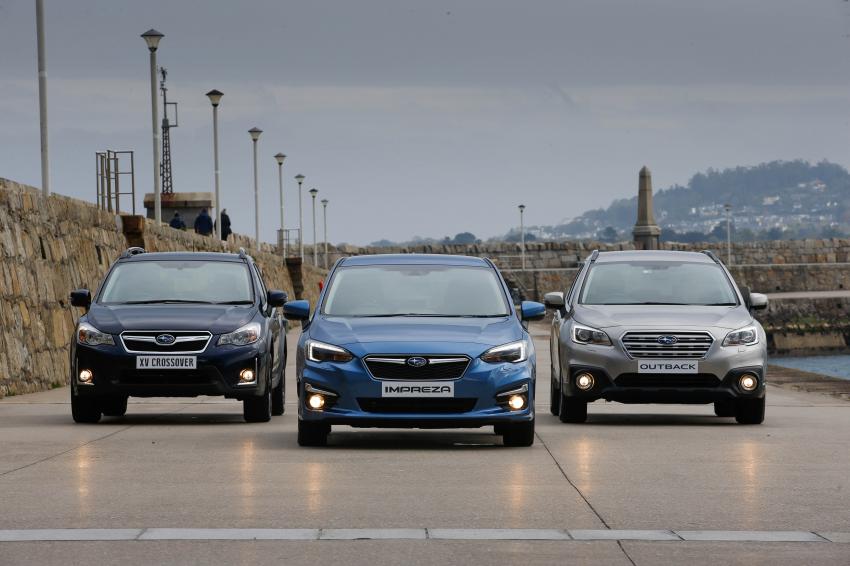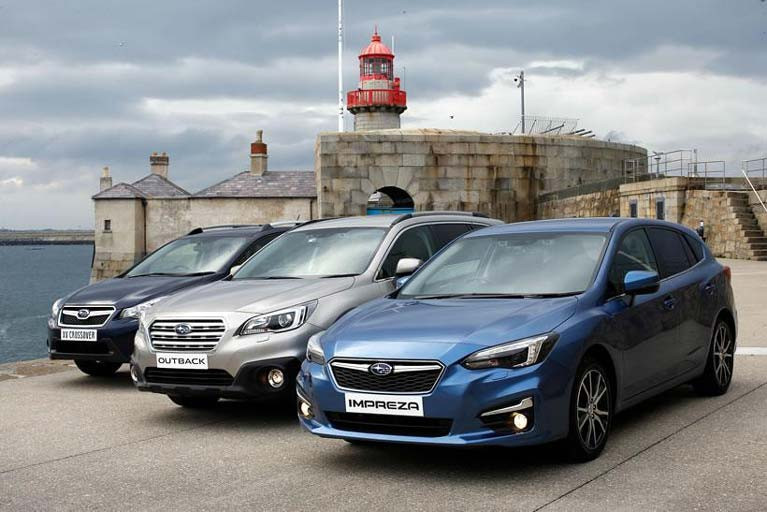Displaying items by tag: Subaru
Sailors’ Favourite Subaru Forester Claims Top Multi-Purpose Vehicle Award
Irish sailing sponsor Subaru has been picking up awards for its Forester marque, the multi-purpose vehicle (MPV) that has proved so popular among Irish sailors and boaters.
Last month, the Forester won Euro NCAP’s Best in Class award for 2019 in the Small Off-Road/MPV category.
Subaru — who last year came on board as sponsors of the only sailing world championships to be held in Ireland in 2019 — also signed up as official car sponsors at the National Yacht Club in Dun Laoghaire, where the Flying Fifteen World Championship was hosted.
The club has a number of committed Subaru drivers, and several enthusiastic Forester drivers in particular who note the towing ability and comfort of the vehicle. Former Flying Fifteen Dublin Bay Sailing Club Class Captain Ken Dumpleton is one such advocate as he relates in this promo video below:
Meanwhile, Irish car blogger Caroline Kidd has just been behind the wheel of the fifth generation 2020 Subaru Forester that is being sold exclusively as a hybrid (‘e-BOXER’). Her findings are on her 'Changing Lanes' website HERE.
The recent accolate is the second Euro NCAP award for the Forester e-BOXER, having recently achieved the highest score ever in its class for Child Occupant Protection. It is awarded to the best performing model in each class by the European New Car Assessment Programme (Euro NCAP) and considers all vehicles tested within the 2019 calendar year.
The Forester, along with other models in the Subaru marque, were out in force in Dun Laoghaire for last September's Flying Fifteen Worlds that were won so convincingly by the UK's Graham Vials and Chris Turner.
 The Subaru car range displayed on Dun Laoghaire's East Pier during the 2019 Flying Fifteen World Championship
The Subaru car range displayed on Dun Laoghaire's East Pier during the 2019 Flying Fifteen World Championship
The award announcement follows recent news that the Forester e-BOXER also received the maximum five stars with outstanding scores in all four NCAP assessment areas of Adult Occupant, Child Occupant, Vulnerable Road Users, Safety Assist. On the area of Child Occupant Protection, the Forester e-BOXER achieved the highest score ever in its class with a 91% safety standard.
Subaru Ireland Managing Director Pat Ryan commented: “We are delighted that the Forester e-BOXER has been recognised as a best in class vehicle by Euro NCAP. The award is testimony to Subaru’s on-going commitment to build the safest cars on the road today.
“These results have been made possible thanks to the Subaru Global Platform (SGP) which offers unrivalled chassis rigidity. Together with this solid body structure, and best in class safety features, this all-new 5th generation Forester is the safest, most technologically advanced Forester yet.”
Ireland hosted the Flying Fifteen World Championship twice before, in 1992 and 2003 (also sponsored by Subaru), but 2019’s event was the biggest by far.
Subaru is keen to build on its strong affiliation with the Irish sailing community. The company has a range of versatile, safe and capable AWD vehicles that are perfect for towing and hence, the association with the sailing community works well for the brand.
Click HERE to find out more about the Subaru Forester e-BOXER.
Subaru to Sponsor Flying Fifteen World Championships 2019
Subaru Ireland are delighted to announce they have come on board and and are ready to set sail as the main sponsor and vehicle partner of the Flying Fifteen World Championships 2019.
Subaru also becomes a sponsor and corporate vehicle partner of the National Yacht Club in Dun Laoghaire, which will host the event from 2-13 September on Dublin Bay.
Speaking at the launch last week, held at the NYC, Commodore Ronan Beirne said: “Subaru is a quality brand, and to endorse the National Yacht Club as vehicle partner and for the Flying Fifteen World Championship hosted by the club allows us to share the Subaru brand definition of ‘Confidence in Motion’ as our members enjoy sailing and as the National Yacht Club prepares for the only World Sailing Championships to take place in Irish waters in 2019.”
Sean Dunne, director of Subaru Ireland said: “We are very proud to become a partner of the National Yacht Club and excited to be the main sponsor and vehicle partner of the Flying Fifteen World Championships next year.
“Our historical association with the NYC sailing club goes back to the last time the Subaru F15 World Championships were held in Ireland in 2003.
“The association with NYC adds to our growing portfolio of sponsorships that includes Dublin GAA, TG4 and Monkstown Hockey Club. We were delighted that two members from the All-Ireland winning Dublin football team, Con O’Callaghan and Eoghan O’Gara, joined us for the announcement in the National Yacht Club.
“See you on the water next year for the Subaru F15 World Championships 2019.”
As previously reported on Afloat.ie, seven Irish Flying Fifteens have automatically qualified for next year’s Worlds.































































